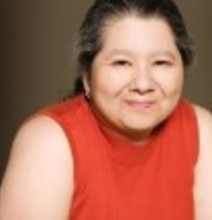People with Borderline Personality Disorder (BPD) have a skewed way of thinking. We see criticism where there is none, we see abandonment when someone doesn’t return our phone calls, and we see despair when really it is just a different perspective. Although BPD is not classified as a “thought disorder”, in my opinion it should be. People with BPD internalize their skewed visions of themselves and turn their own thoughts against them. My husband used to always say to me, ‘Every feeling first begins with a thought.’ I think this is true.
So how does one go about learning to change the way he or she thinks? For me it began with the daily practice of gratitude. A friend once commented to me that even though I had lots of money, lots of friends, and four beautiful children I was always so unhappy. She could not understand why. My initial reaction was anger.
In complete and utter indignation I thought, ‘How dare you say something like that to me?’. But I recalled that after my last overdose, and being in the hospital for six months when I gave myself an acquired brain injury, that when I was discharged I had to decide whether or not I would go back to smoking. I had been a smoker for almost thirty years.
Each day when I woke up I had to recommit to my decision not to go back to smoking. I did that every year for three years because that’s how long it took for my cravings to finally go away. I lay in bed after that night following that exchange with her thinking, ‘I can choose to practice happiness. In the same way I chose to be a non-smoker, I can choose to practice happiness.’
After that every day when I got up I would log on to my Facebook page and post a daily gratitude posting. They were simple and were things we all take for granted like access to clean water, electricity, easy access to good food. Gradually I began to see changes in myself. The way I saw the world and the way in which I interacted with the world began to change. I began to feel more centred and more grounded within myself. I began to see the world as a place of immense beauty and bounty as opposed to a battlefield where I was always the loser.
Changing the way you think is not for the faint of heart.
Changing the way you think is not easy, nor is it for the faint of heart. If you want to have a real BPD recovery, it takes practice and diligence and yes, falling down again and again. The trick is that when you fall down, you have to get back up and start over again. Learning how to change the way you think so you can enjoy BPD recovery is a skill like any other. You did not burst from your mother’s womb knowing how to tie your shoes or eat with a knife and fork. Those are skills you were taught.
Most people with BPD experience negative thoughts about themselves all the time. This learned behaviour is often taught to them by their family and can be unlearned. Over time¨ those thoughts become knee-jerk reactions to certain stimuli. In order to change those thinking patterns, you must first become aware of them, then make a conscious choice to challenge them, and then stop them in their tracks. Life is all about perspective and changing the focus of your vision will help you learn to see things in a different light.
My favourite saying is, ‘Introspection brings insight and insight enables change’. It’s that simple and that difficult. In a similar fashion, people with BPD generally have very low self-esteem. This may be because they were not taught to value themselves when they were children. I use an analogy that if your parents did not know how to make pasta, it would have been impossible for them to teach you how to make pasta. Similarly, if your parents did not have good self-esteem, they could not possibly have taught you how to have it. But you can learn how to make pasta on your own. It takes a conscious effort to change the way you think. Acquiring this skill takes time.
It takes a conscious effort especially for the person with Borderline Personality Disorder.
Change is always difficult. This is because when the behaviour is familiar, you know what to expect when you do it. When you embark on change, it’s very frightening because you are embarking on virgin territory. But change is possible. How many psychiatrists does it take to change a lightbulb? Just one. But the lightbulb has to really want to change. You can do it.
About the Author: Dee Chan
 Dee Chan was diagnosed with BPD more than 35 years ago back when the diagnosis was still fairly new and not very well understood. She has been living with it and coping with it ever since and finding ways to thrive despite it. She has been able to put it into complete remission and turned her life around completely through the practices of gratitude, forgiveness and accountability. Find out more about Dee’s work on her website bpdnomore.com.
Dee Chan was diagnosed with BPD more than 35 years ago back when the diagnosis was still fairly new and not very well understood. She has been living with it and coping with it ever since and finding ways to thrive despite it. She has been able to put it into complete remission and turned her life around completely through the practices of gratitude, forgiveness and accountability. Find out more about Dee’s work on her website bpdnomore.com.



What a breath of fresh air to hear from a person with BPD about their personal growth. Thank you Dee.
I’m thinking how miraculous you got over this. Been trying all my life
actually these cognitive distortions are always at the root of any & ALL personality problems.
self monitoring is arduous & constant.
hardest work I have EVER done & still do. but now that I am more conscientious & stop the blaming, my world has improved.
I thought this was a very useful piece. My mother-in-law was diagnosed with BPD a few years ago. She is in the throes of a relapse (so to speak) and the insights you shared related to low self-esteem are extremely relevant. A huge challenge in her situation, I believe, is that she is 76 with a lifetime of untreated mental health issues and all that goes with it. I think it would be very helpful to her to have a provider who also has expertise in gerontology. Not even sure if such a unicorn exists!
Fabulous article. I will certainly share this article with several folks that struggle with BPD on a daily basis. Thank you so much for keeping it simple, and with a guide on several examples on how to find relief from BPD.
Wonderful article about something not often talked about. Thank you for sharing..peace on your journey.
I learnt about this condition while studying mental health and community services. It is great to hear that there is a way through this for people who are willing and wish to make changes to their lives. many thanks for the well written article. Most impressed/